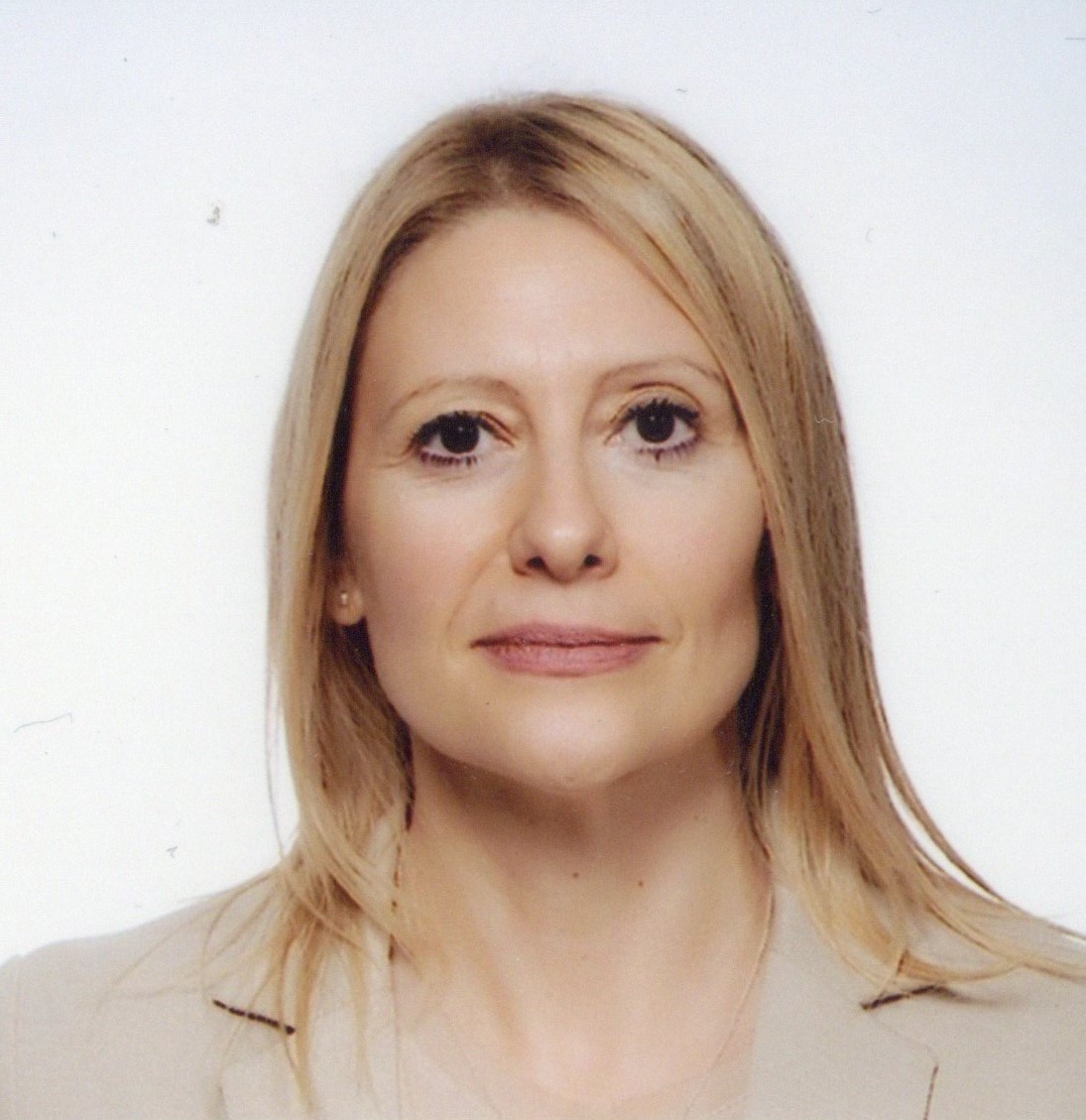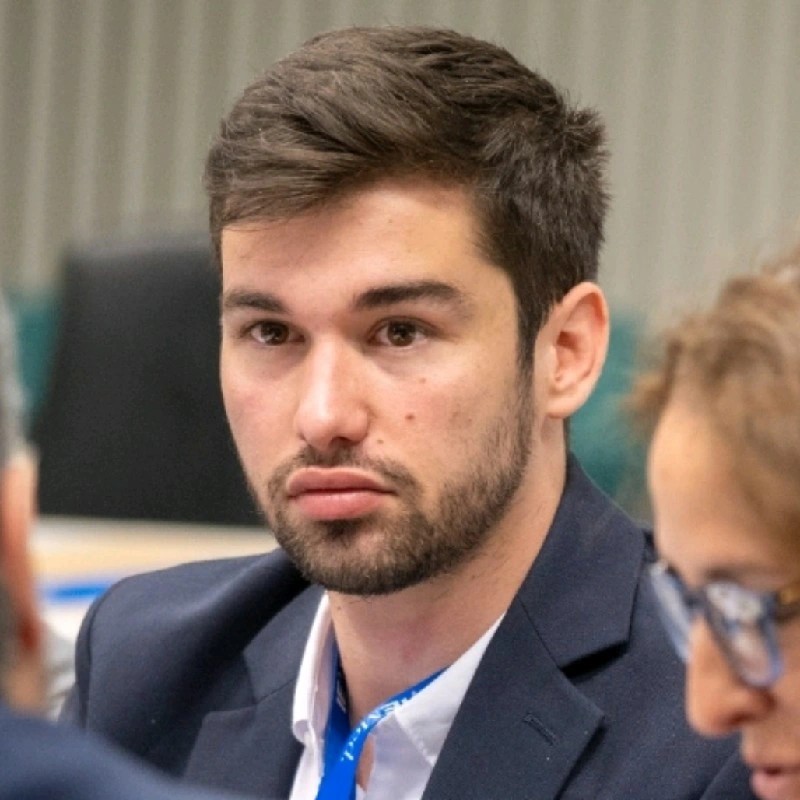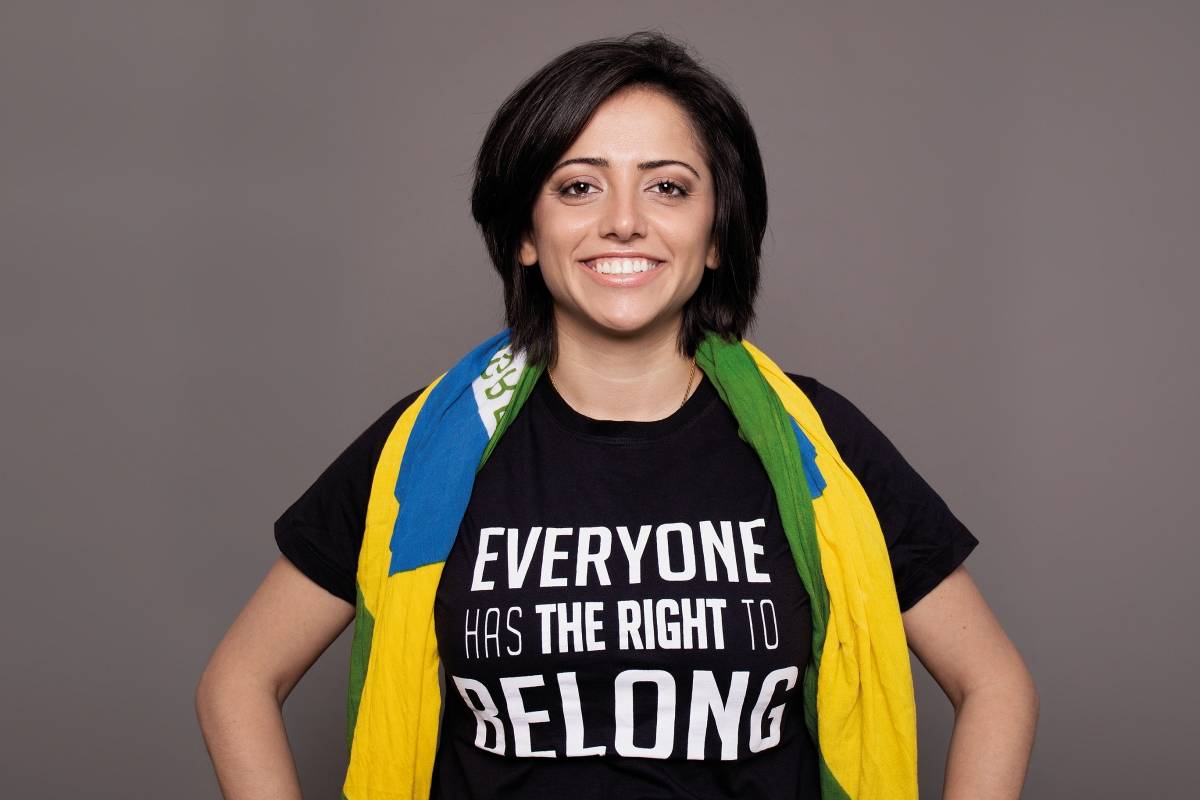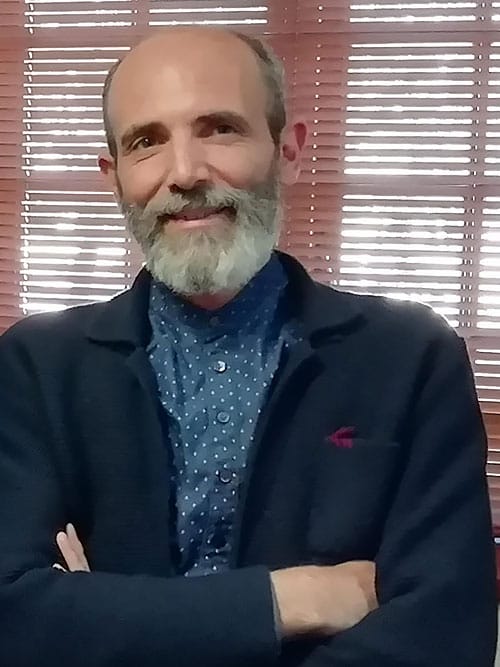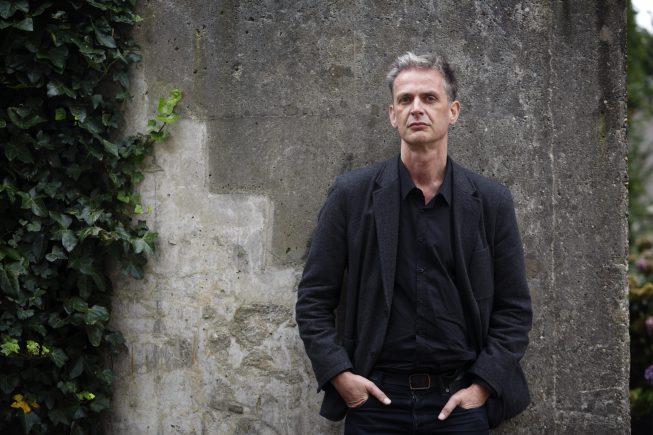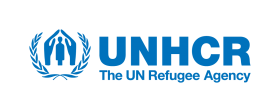Летна школа 2020: Правата на бегалците и миграција
Предизвици во време
на пандемија
24-28 август 2020
За
летната школа
2020
Center for refugee law and migration at the Iustinianus Primus Law Faculty, University Ss. Cyril and Methodius-Skopje in collaboration with the UNHCR Mission in Skopje, and in partnership with the International Institute of Humanitarian Law – Sanremo, Italy hosts a Summer School on Refugee Rights and Migration with a special focus on the Challenges in times of COVID-19 Pandemic.
This 5-day intensive course is designed to help participants gain basic and intermediary knowledge about refugee rights and migration and better understand the challenges they encounter in times of pandemic. The course includes general and specialized session, debates, discussions, and several afterhours / optional sessions, including a session for networking of the participants. This program is open for participation to all students on undergraduate and postgraduate level, regardless of their previous knowledge on the topic of refugee law and migration. A maximum of 50 participants will be accepted to the program. Details about the application process are listed below.
The program will be delivered in English in an online mode /telematics mode via morning and afternoon sessions. Additionally, the program offers several afterhours /evening sessions.
Кога
Понеделник - Сабота
24 - 28 Август, 2020
* Schedule times are given in CET (Central European Time)
Каде
Online
Zoom Conference Call
Организатор
- Центар за право на бегалци и миграција
- UNHCR, Северна Македонија
- Меѓународен институт за хуманитарно право
Learning
Objectives
The objective of the summer school is to build the knowledge of participants on Refugee rights and migration, issues faced by people in need of protection, including stateless persons, internally displaced people and migrants, understand the challenges and experiences faced by particular countries amidst mixed migration movements and look beyond the present and local/national perspective.
The program is designed to help students critically reflect on issues related to refugee rights and migration in an interdisciplinary approach during the numerous sessions taught by leading academics and professionals in the field of refugee law and migration.
Students will have the chance to learn from international experts, well-respected academics, and other peers. Students will be able to meet and network with key stakeholders and experts in the field of migration. Students must attend all sessions in order to receive their certification upon completion of the course.
The Summer school of Refugee Rights and Migration aims at:
- Offering an interdisciplinary, interactive, and experiential course focused on the political, economic, social, and cultural contexts of forced migration;
- Understanding and analyzing the law, principles and policies relating to international protection;
- Defining key concepts and the use of correct terminology with regards to refugees, migrants, IDPs and stateless persons;
- Gaining a deeper understanding of migration-related topics;
- Understand key aspects of national migration policies, regional and international cooperation in migration, integration and obtain knowledge about interculturalism and multiculturalism policies;
- Raising awareness on the human rights issues faced by refugees and the need for durable solutions;
- Envisioning the key challenges in times of COVID-19 pandemics to and faced by refugee and migrant populations;
- Creating true advocates for refugees among future professionals.
meet
our speakers
International Speakers
This program is open for participation to all students on undergraduate and postgraduate level, regardless of their previous knowledge on the topic of refugee law and migration. A maximum of 50 participants will be accepted to the program.
Beatriz Vasconcellos
Belachew Gebrewold
Belachew Gebrewold
Biljana Đorđević
Dr. Christel Querton
Dr. Katerina Belazekoska
Dr. Madeline Garlick
Francesca Bonelli
Haruno Nakashiba
Ivana Krstic
Kristijan Mihajlovski
Lobna Abdel Hadi
Martin Waehlisch
Melissa Amisano
Mikko Annala
Minji Song
Monica Sandri
Mr. Cameron Shilton
Mr. Claudio J. Delfabro
Mr. Rudi Osman
Mr. Vasko Popetrevski
Ms. Anna Gekht
Ms. Elizabeth Downing
Ms. Michelle Manks
Nikola Kovačević
Olga Vorontsova-Mykhailova
Panagiotis Paschalidis
Patrick Wall
Prof. d-r Anna Krasteva
Prof. d-r Bostjan Zalar
Проф. д-р Ирена Рајчиновска Пандева
Prof. d-r Jaap de Zwaan
Prof. d-r Nikola Jankulovski
Prof. d-r Nikos Xypolytas
Проф. д-р Сашо Георгиевски
Prof. Marco Borraccetti
Rachel Criswell
Saja Al Zoubi
Ulrich Stege
Vincent Chetail
Ziad Ayad
Zoran Drangovski
Распоред
Set in CET (Central European Time)
Welcome remarks
Facilitator: Prof. d-r Irena Rajchinovska Pandeva, Head of the Center for Refugee Law and Migration
• Prof. d-r Nikola Jankulovski, Rector of the Ss. Cyril and Methodius
University in Skopje
• Prof. d-r Goran Koevski, Dean of the Iustinianus Primus Law Faculty-
Skopje
• Mr. Claudio Delfabro, Director, Department of International Refugee Law and Migration Law, International Institute of Humanitarian Law,
Sanremo, Italy
International Refugee Protection Framework
Duration: 90 minutes
Methodology: PPT, case study
Structure:
The lecture will be divided into three parts:
1. lecture on the legal foundation of the protection of refugees and migrants, and
particular vulnerable groups of refugees and migrants (45 minutes)
2. discussion with participants on the vulnerability of refugees and migrants (20 minutes)
3. case study on the recognition of refugees and particular vulnerable groups of migrants (20 minutes)
- final conclusion and remarks (5 minutes)
Conflicts, Refugees and Migration Flows
Duration: 60 minutes
Methodology: presentation, key messages
Structure:
• Mapping the theory behind reality: conflict, refugees and migration
• Conflict and its impact on global crisis of displacement
• Refugee Flows and Forced Displacement
• Showcasing conflict ridden countries
Meet and Greet Session
Refugees and other persons in need of protection
Duration: 90 min
Methodology: case studies, presentation, key messages, discussion
Structure:
• a series of case studies on identification of categories of individuals in need of protection (incl. international protection): refugees, asylum seekers, internally displaced persons, stateless persons, migrant workers, environmental migrants.
• definition of refugee and migrant worker
• common misconceptions and mistakes in definitions
• definition of refugee in 1951 Convention: Art 1(A) inclusion clauses)
From war on terrorism towards the rule of law: the case of international protection
Lecturer: Bostjan Zalar
Duration: 70 minutes
Methodology: presentation, case study, discussion
Structure:
• Introduction to the political concept of “war on terrorism” (as an example of emergency situation).
• Landmark court rulings as reactions to emergency situations declared by executive branch of governments.
• Legal status of asylum and subsidiary protection under EU law.
• The concept of exclusion from refugee status and subsidiary protection due to serious reasons for considering that the applicant has committed certain crimes or has been guilty of acts contrary to the purposes and principles of the United Nations.
• Exclusion from international protection in the case law of the Court of
justice of the European Union (B&D, C-57/09 and C-101/09; Lounani, C-573/14, Ahmed, C-369/17);
• Eventual interplay between (international) criminal law and law on
international protection.
• The use of undisclosed evidence, principle of non-refoulement and interplay between ECHR and EU law.
• Detention of asylum seekers and national security (J.N., C-601/15 PPU)
• Position of non-removable third-country nationals.
• Conclusions on main challenges for the rule of law in the field of
international protection in the light of emergency situation.
The Echoes of Refugee Crises in Visual Arts
Lecturer: Prof. Slavica Janeshlieva, PhD and prof. Goce Nanevski, MFA, Faculty of Fine Arts, University Ss. Cyril and Methodius; Shergo Mousa, Refugee artist)
Methodology: presentation, key messages, discussion
Duration: 60 minutes
Structure:
• Visual art as a formative document
• Visual artists as advocates for refugees and refugee crises
• Artistic reflections and articulations of experiences of migration
EU Asylum and Immigration Law and Policy
Lecturer: Jaap de Zwaan
Duration: 90 minutes
Methodology: presentation, key messages, discussion
Structure:
• Migration as a problematic of all times;
• the institutional and legal framework of EU policy making;
• the Internal Market as a core objective of EU cooperation;
• the Schengen cooperation;
• the scope of EU competences in asylum and immigration policy;
• the achievements and shortcomings of the EU asylum and immigration policy thus far
Refugees in Lesvos in the Context of COVID-19: Conditions and Perceptions
Duration: 90 minutes
Methodology: presentation, key messages, discussion
Structure:
1st Part: Theoretical Considerations – The Holistic Approach to Migrant Exclusion
2nd Part: Methodological Considerations – Conducting interviews with
interpreters in a refugee camp setting
3rd Part: Three Spaces of Preparation for Exclusion – Country of Origin, Turkey, Greece
4th Part: Refugees in Moria – Living Conditions and Perceptions
5th Part: COVID-19 in Moria – Continuities and Discontinuities
6th Part: Discussion
The course aims at presenting the present situation in the hotspot of Moria utilising interviews from refugees living the camp. The first part of the presentation will outline a theoretical context through which one can understand the consequences of the management of the crisis on refugees themselves. By tracing important aspects of their journey, it appears that refugees become familiarized with marginalization, while seeing the latter as an inescapable part of their social status. This seems to undoubtedly undermine their future integration in whichever European country they eventually end up in being accepted. The second part of the presentation involves the latest developments concerning the COVID-19 and the consequences, both negative and positive, that these have on refugees. The lack of testing and hygiene conditions could turn Moria into a breeding ground for the virus. However, the isolation of Moria from the rest of the island came at a time when the local and international extreme right was making its presence in Lesvos strongly felt. The nation-wide lockdown acted as a form of temporary protection against extreme right criminality. At the same time, the possibility of Moria being exposed to the virus from a second wave undermines
refugees not only in the obvious manner, but also leaves room from further violent escalation from local and international extremists.
Refugees’ and Migrants’ Impacts on Local Development in Rural and Mountainous Areas of Italy: The Change of Perspective Imposed by the Pandemic
Lecturer: Andrea Membretti
Duration: 90 minutes (60 mins lecture + 30 mins question time)
Methodology: Lecturing ‘ex cathedra’
Structure:
The session aims presenting:
• the reversal of the trend of emigration and depopulation in many European mountain contexts in the last 20 years, due mainly to international immigration flows
• the contribution of foreign migrants (labor ones as asylum seekers and
refugees) to local development and community resilience in several mountain territories, with a specific focus on the Alps and Apennines
• the contribution of the new approach defined by MATILDE H2020 Project to the investigation of this phenomenon in rural and mountainous regions of Europe
The session intends also to discuss:
• the first consequences of Covid-19 and anti-pandemic measures with
respect to migrant’s condition in rural and mountain areas
• the emergence of a new “compulsion to locality” as a consequence of a
radically different approach to mobility and proximity in a structural post
Covid-19 situation
Movie and Discussion Evening
Seeking Solutions
Duration: 90 min
Methodology: presentation, videos, key messages, discussion
Structure:
• Durable solutions as the end of the displacement cycle
• Preliminary considerations and key components of durable solutions
• Outline of each of the traditional durable solutions (Voluntary Repatriation, Local Integration, Resettlement) supported by Complementary Pathways
Case Study: Canada’s Response to Migration, Including Aspects of the Current COVID-19 Pandemic
Duration: 60 minutes
Methodology: presentation, key messages, discussion
Structure:
Historically, Canada has been considered as one of the “classical immigration countries”. Canada considers its acceptance of immigrants as one of the main factors that enhance its global standing and demonstrate its compassion and leadership in the area of migration and human rights. The country has a very structured intake of voluntary migrants, but it has also been open to refugees. Immigration, settlement practices, and multiculturalism have been Canada’s trademark. This session will focus on the importance of immigration, Canada’s recent policy shifts towards highly-skilled workers, and the programs that Canada has in place in order to support immigrants and refugees before, during and after COVID-19 pandemic.
Global Futures and Humanitarian Foresight
Duration: 60 minutes
Methodology: presentation, key messages, discussion
Structure:
The disruptions of the global pandemic have dismantled our status quo in a space of months. It demonstrates that the baselines of the humanitarian system have fundamentally and irrevocably shifted. We know now that we can’t build back to what it was before - that the global pandemic has shown up in harsh light the fundamental cracks in our global systems and structures. And thus, the institutions we were prior to this cannot be the institutions we must be post this.
What could the new normals in a post-COVID world look like? How do we prepare for the unexpected, so that major disruptions don't keep catching us by surprise?
How do we think about humanitarian aid in a much broader context than we are used to?
Three Crises: Refugees, Climate, Pandemic
Duration: 90 minutes
Methodology: Lecturing ‘ex cathedra’; Team work following the methodology of Future City Game; Competition “Youth and crisis: how to build a post-crisis world”
Structure:
The session has a triple objective:
• to question the theoretical history of the concept of ‘crisis’ and to understand the conceptual hegemony of the crisis as a major metaphor of contemporary society;
• To argue the author’s provocative idea “If the crisis did not exist, it would have been invented by populist leadership”;
• To analyze and compare three crises – refugee, climate, pandemic – in terms of elite’s and citizen’s responses.
Debate: Refugee Protection in the Context of Mixed Migration
Movements in the Western Balkans
Zoran Drangovski - Macedonian Young Lawyers Association (moderator);
Panagiotis Paschalidis - Eliamep, Greece;
Prof. d-r Biljana Djordjevic - MIGREC University of Belgrade;
Application
Details
The program will be delivered in English therefore the participants need to speak English fluently. This program is designed specifically for students and students from any and all disciplines are welcome to attend. The only prerequisite is that applicants must have taken at least one introductory course in social science, political science, history, or law. There is no restriction on students from any level of study (undergraduate, master’s, PhD) participating in the course.
Students will receive a certificate upon completion of the course.
The 2020 edition of the Summer school on Refugee rights and migration is offered free of charge, yet the selection of participants will be made on a competitive basis.
Registration for the summer school is done through the Application form. In addition, the applicants will be asked to upload CV and Motivation Letter (300-500 words).
Deadlines
– Registration deadline: 17.08.2020
– Notification of selected participants: 20.08.2020
– Summer school session-from 24.8.2020 to 28.8.2020
Контакт
lawclinicrefugees@gmail.com
facebook.com/InternationalRefugeeLaw/
Application
Form
Applications are now closed!
Applications for the Summer School on Refugee Rights and Migration 2020 are now closed.
Thank you for your interest in applying! We are honored to have received applications from around the world.
Since we have received over 200 applications and can’t accept all of them, we will now dedicate some time to go through the applications to find the most interesting, outgoing and open participants.
Participants will receive notice on their status on August 20th on their emails.
Once again, thank you very much for showing so much interest and good luck!




















